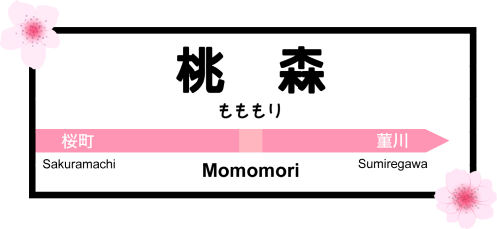Intro
Ikegaya Yuuji is a professor of pharmaceutical sciences who is an active neuroscience researcher. He is often quoted in the Hobonichi Techo quote section, and the company that publishes the Hobonichi Techo did a series of interviews with him called "What Was There Before the Big Bang?" back in 2019. Since I often think about that, I wanted to translate this series.Translation
Tell Us, Ikegaya Yuuji-san: What Was There Before the Big Bang?
It's been a few months since Ikegaya Yuuji-san's picture book, Why Do We Live? has come out. This time, we're asking him why the world exists. To get those of you who haven't read it excited about it, we've hidden some words that are associated with the picture book in this series. Even if you read the interview with them hidden, we think the interview itself is enjoyable on its own. Nagata and Sugano from Hobonichi Picture Book Publishing conducted the interview at Ikegaya-san's lab at Tokyo University. Sugano edited the interview for publication.
Part 1: I Felt Like I Understood?
-- It's been two months since Why Do We Live? came out. People have been sending us their impressions, but their impressions are quite different from those for other books.
Ikegaya I see.
-- The most common thing people said was "I don't know how to express my impressions about it."
Ikegaya Ah.
-- The rest of the feedback mostly falls into one of two camps: "It was hard to understand. I didn't understand it." or "It really made things click. I wish I'd read it sooner."
Ikegaya I was actually surprised by the number of people who said "It really made things click." I thought more people would reject what it said.
-- I didn't see many people react negatively, but I did see quite a few who didn't understand it.
Ikegaya
I'm not too concerned about being misunderstood when I say that the aim of this book was for people not to understand. It's a book about how what we don't understand touches our lives quite a bit.
When Itoi [Shigesato] wrote a blurb about the book in "Today's Darling" (a regular musings blog post that Itoi writes for Hobonichi's website) he expressed it like, "It's an 'I don't understand' that lasts." And I really think that gets to the heart of it.
From "Today's Darling" by Itoi Shigesato, May 28, 2019
I'm starting to hear people's thoughts about the book Why Do We Live? here and there. Many people have expressed that they don't understand, which is the same way we imagined people would feel while it was being written. I'm not trying to brag that we predicted what would happen. We thought many people would be left with a lack of understanding after reading it, but we decided to publish the book anyway. From a publisher's perspective, people not understanding the book is a scary proposition. That's because they think people won't buy a book they can't understand.
But, I think there's something else. I buy lots of things I don't understand. Even when I buy books I think I'll understand, there are parts I don't. There are movies I don't understand but still enjoy. The other day I reread The Adventures of Winnie the Pooh and I thought, Japanese is a high-flown language. It's written for children, but there are things you wouldn't understand unless you were an adult. But kids still like Winnie the Pooh.
Probably almost everyone will not understand Why Do We Live?. But when you open the book again one day, you may say "Oh, I think I get it now!" That's the kind of "I don't understand" that lasts. Dr. Ikegaya based this book on a lecture he gives to his new students at Tokyo University, titled "Why Are We Here?" I don't know if the new students understand it when they hear it, either. But they say things like, "It gave me a strange feeling." You can feeling that sort of strange feeling and not understand at the same time. If you can induce that duality with a picture book, that's pretty incredible. So, that's the kind of book we wrote. No matter how many times people tell us they didn't understand it, we'll keep asking. Even if you didn't understand it the first time, try reading it again some day.
Ikegaya
I think it's natural to read, "we live so that we can get older? What?" and really dislike that.
From the time that we're little, we all think, "I don't want to become like Dad or Mom or Grandpa or Grandma. I don't want to die." So if someone says that to you, of course you'd say, "Huh? I don't get it."
-- I'm really glad you wrote a commentary page to address that feeling.
Ikegaya A couple of editors asked me to write that commentary page. I'm glad I did.
-- I think there will be some people who are unsettled by the book in attendance at your special lecture on September 3rd.
Ikegaya They are welcome to leave. We don't need any more of them.
-- No!
Ikegaya
That's what I'd like to say (laugh). I'll probably go into some more detail about that in my September 3rd talk. And I'll clarify some things that weren't spelled out due to the nature of picture books being more lexically brief. Although...there is some time until my lecture, so what I end up wanting to talk about may change.
Anyway, what I'd like to express is that the discomfort many may feel is not necessarily a bad thing.
-- They should think of it in a positive...
Ikegaya
Yes, like a seed. For example, this is something I think about when I look at my students at Tokyo University. They are at the beginning of a journey. From my perspective, they have a lot of passion and potential bottled up inside them.
This shows through when they listen to the talk, too. They feel this overwhelming power, like they can't complain, they say to themselves, "I just have to live, I guess. That's how it is."
Because a tree just sprouts, doesn't it? Even if you yell "don't grow!" at it, it does anyway. It pops up out of the ground unabated. That's how I think of this book. We just exist, above and beyond our rights or obligations. We are natural phenomena.
-- Some people said "I don't get it," but the second most common response was, "I understand a little, but not all of it."
Ikegaya I think that's a very honest response. Because this book is saying, "The universe has been growing older since the Big Bang. We're helpers in that process."
-- Yes, yes.
Ikegaya Even I have trouble absorbing that.
-- It's...difficult to absorb (laugh).
Ikegaya
You may understand it intellectually, but you don't really feel it. That experience manifests as "I don't completely understand it."
It's interesting to understand something without feeling it. There are two ways of learning something: you either understand it and move forward, or you move forward intuitively without fully understanding. We learn things like skiing or tennis or riding a bike in the second way.
-- I see.
Ikegaya
There are things that you don't explicitly know, consciously, but you can sort of feel it. You don't have some sort of logical realization, but you feel like you kind of understand it, yet don't understand it. That kind of understanding exists.
That kind of learning has somewhat fallen out of favor. In school, they always ask you "okay, do you get it now?" right away, right? I think that method of continuous confirmation has led to other forms of learning being lost.
-- Like, right after you learn something, you take a quiz to confirm what you've learned.
Ikegaya
Yes, yes. And then you can see your points going up or down, and you get that immediate feedback. Students go through their nine years of compulsory education not so much focusing on learning effectively as completing pieces of the curriculum.
When that's what you're used to, not knowing is equated with "bad." People say to you, "what, you don't get it?" and your points go down, and you think that's bad.
But, for example, think about fish. They don't "understand," but they choose the correct direction to run away. Society calls that "animal instinct." A more specialized term would be "intuition." How did they learn what they know? Fish don't take a bunch of quizzes on what they've learned to confirm it.
(We'll continue with more on fish intuition tomorrow.)






